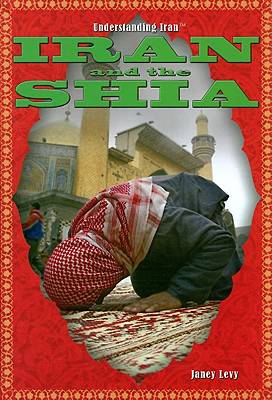
- Afhalen na 1 uur in een winkel met voorraad
- Gratis thuislevering in België vanaf € 30
- Ruim aanbod met 7 miljoen producten
- Afhalen na 1 uur in een winkel met voorraad
- Gratis thuislevering in België vanaf € 30
- Ruim aanbod met 7 miljoen producten
Zoeken
Omschrijving
The history of Iran is a long, rich, multi-layered one. Iran was once known as Persia and was devoted to an ancient religion known as Zoroastrianism. The Persian people converted to Islam following the Arab conquest. Persia contributed as much to Islam as it received. Indeed, it eventually developed along a separate path from most Arab Muslims, as it adopted the Shia branch of the faith. Though the Shia would always be a minority within Islam, the Shia would nevertheless develop a complex and powerful faith, and Persia would experience several periods as a mighty and sophisticated empire. In the modern age, Iran came to be ruled by secular shahs, or kings, who tried to remove religion from the public sphere. Yet with the overthrow of the last Shah in 1979, Iran became a Shia state, ruled by conservative religious clerics. It has since come to occupy a central role in Middle Eastern and world affairs, and its Shia government exerts a tight grip on its citizens and their lives. This book introduces readers to the vast sweep of Iranian history and religion. Shi'ism and Iran cannot be separated--they are so tightly entwined. The role Iran comes to play in world affairs in the 21st century will have everything to do with religion and its government's use of it. The consequences for the Middle East and the world at large could be dramatic.
Specificaties
Betrokkenen
- Auteur(s):
- Uitgeverij:
Inhoud
- Aantal bladzijden:
- 80
- Taal:
- Engels
- Reeks:
Eigenschappen
- Productcode (EAN):
- 9781435852822
- Verschijningsdatum:
- 1/09/2009
- Uitvoering:
- Hardcover
- Formaat:
- Bibliotheekbinding
- Afmetingen:
- 165 mm x 231 mm
- Gewicht:
- 317 g

Alleen bij Standaard Boekhandel
+ 117 punten op je klantenkaart van Standaard Boekhandel
Beoordelingen
We publiceren alleen reviews die voldoen aan de voorwaarden voor reviews. Bekijk onze voorwaarden voor reviews.











